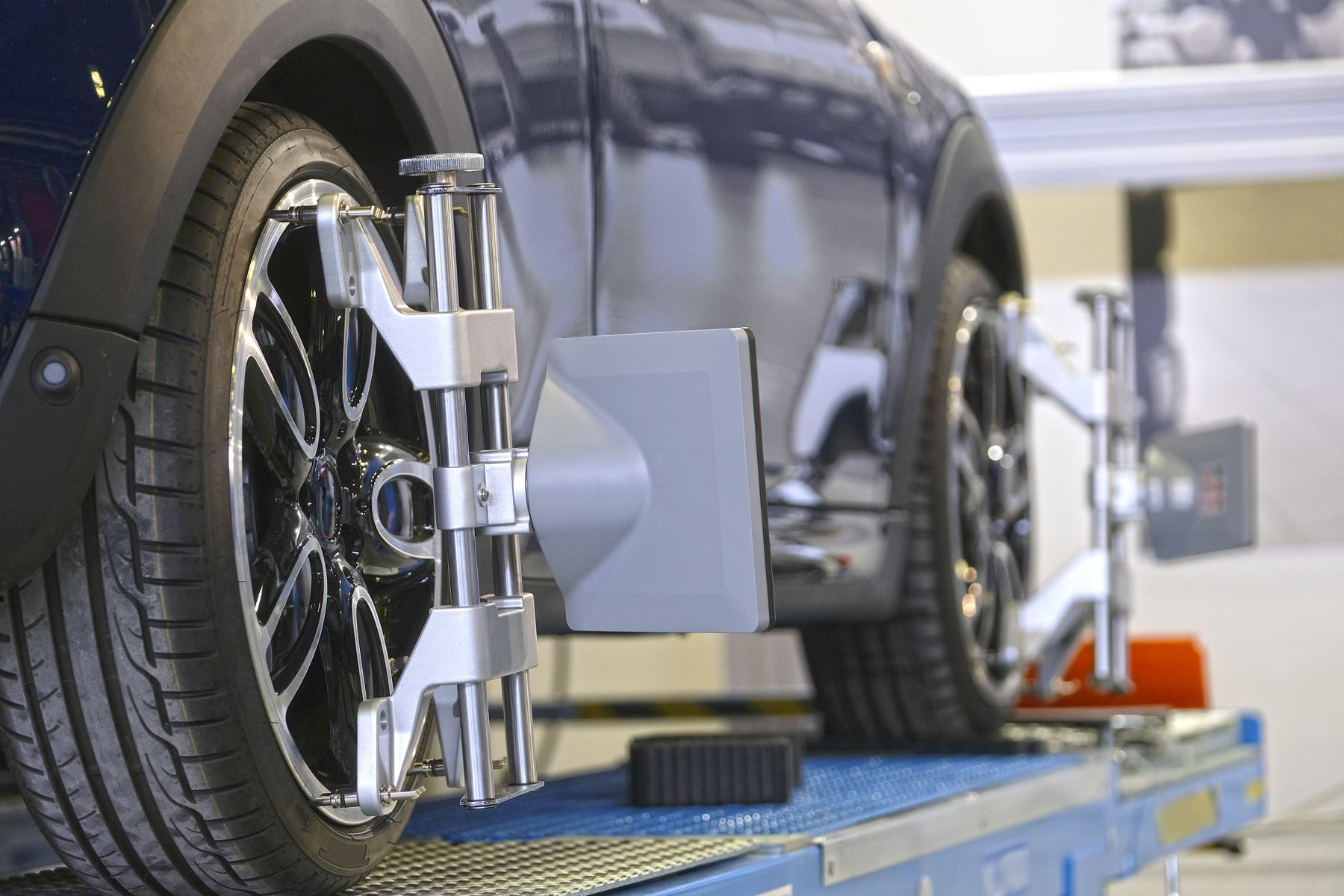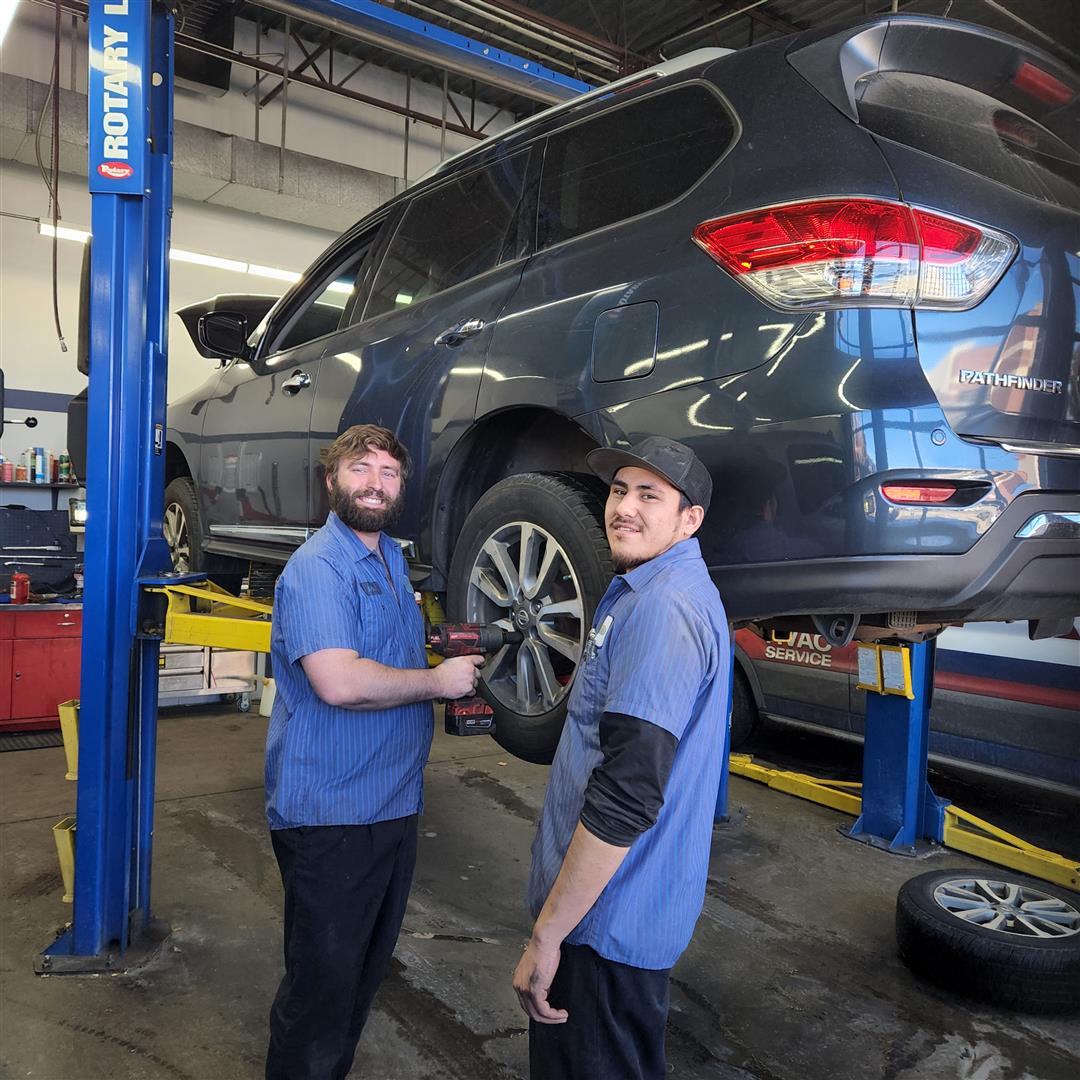Wheel Alignment in Colorado

Driving Habits That Affect Wheel Alignment
No matter how carefully you drive, avoiding potholes, curbs, and bumps in the road, your car's steering and suspension system will eventually need to be adjusted. But, the main cause of premature tire misalignment is often uneven tire tread, aggressive driving (and off-roading), or carrying extra heavy loads. The car parts that most affect the steering are the car's tires, bushing, and springs. But, even a slight car accident at the front end may cause a tire misalignment.
Most drivers will sometimes have a sharp impact on a curb or pothole. After too many deep holes and high curbs, you may feel your car drifting to one side or the steering wheel seems off-center when it should be pointing straight. And, if your car has low-quality, re-threaded tires or tires with very low thread, you may also notice a difference in how it steers.
Here are 3 different types of wheel misalignment to be aware of:
- Camber is when the angle of the steering wheel to the road (which directs the angle of the car wheels) is off-center. This negative camber will affect the ability of a car to take corners precisely.
- Caster is the vertical angle that the wheels make with the horizontal road. You lose the maneuverability of the car when the caster angle is not zero.
- The toe is the wheel's angle in relation to the forward axis when the steering wheel is at the center position. Either wheel can present toe-in or toe-out misalignment, which is the most common type of car wheel misalignment.
Ideally, both wheels in front and back should be pointed straight when the steering wheel is centered and straight. And both wheels should turn precisely in response to a turn of the car's steering wheel.
Tire Balance vs Wheel Alignment
Often, a car owner will mistakenly take their vehicle in to be serviced for a tire balance when they notice the steering is a little misaligned. While tire balancing is important and should be performed when your car tires are rotated or replaced, it is different from a wheel alignment.
Signs that your tires need balancing are:
- uneven tire wear
- steering wheel vibrations
Signs that you need a wheel alignment include:
- car pulls to one side
- very fast tire wear
- crooked steering
- tires that squeal
- steering wheel vibrates
To know if it is the rear wheels or front wheels that are mostly misaligned, take note of where the car or wheel vibrations are coming from - the front of the vehicle or the back of the vehicle. If you feel your steering wheel vibrate, you likely need your front wheels aligned. If the car seats tend to vibrate, the wheel or tire imbalance is more likely to come from the rear wheels.

Two-wheel vs. Four-wheel Alignments
The actual wheel or tire alignment has nothing to do with a mechanic manipulating your wheels, as is done with tire balancing. Wheel alignments must be performed by automotive technicians who use their knowledge, experience, and equipment to adjust your car or truck's suspension system and steering.
They may determine you need a 2-wheel alignment, also called a front-end or rear-end alignment, that is done to correct just your vehicle's front steering and front suspension or the response of the rear-end suspension. A four-wheel alignment is often recommended for modern cars and includes both a front-end alignment along with adjustments to the rear-end suspension system.
Any toe, camber, or caster angles that are off in the rear or front of the vehicle will be diagnosed and adjusted. Inspecting the condition of your car's tire tread and taking notice of any pulling of the car to one side is the best way to know when you may need a wheel alignment.
EAS Auto & Tire suggests you have your car's wheel alignment inspected every year or every 6,000 if the roads you tend to travel are bumpy or unpaved. Otherwise, every 12,000 miles is the general rule of thumb for typical paved roads that are fairly well maintained.